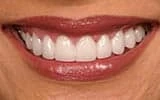
Teeth whitening is a popular cosmetic dental procedure that helps individuals achieve a brighter, more radiant smile. However, despite its widespread popularity, there are several myths and misconceptions surrounding teeth whitening that can confuse and mislead people. In this article, we\'ll debunk some of the most common myths about teeth whitening and provide accurate information to help individuals make informed decisions about their oral health.
Myth 1:
Teeth Whitening Damages Tooth Enamel One of the most prevalent myths about teeth whitening is that it damages tooth enamel. However, when performed correctly, teeth whitening is a safe and effective procedure that does not harm enamel. Professional teeth whitening treatments use bleaching agents such as hydrogen peroxide or carbamide peroxide, which penetrate the enamel to break down stains and discoloration. While some individuals may experience temporary tooth sensitivity after whitening, this is usually mild and resolves on its own.
Myth 2:
Teeth Whitening Is Permanent Contrary to popular belief, teeth whitening is not a permanent solution. The effects of teeth whitening can last anywhere from several months to a few years, depending on factors such as lifestyle habits, diet, and oral hygiene practices. Over time, teeth may become stained again due to exposure to pigmented foods and beverages, tobacco use, or natural aging. However, maintaining good oral hygiene and scheduling regular touch-up treatments can help prolong the results of teeth whitening.
Myth 3:
DIY Whitening Remedies Are Just as Effective as Professional Treatments While there are many DIY teeth whitening remedies available, such as baking soda, activated charcoal, or lemon juice, these methods are not as effective or safe as professional whitening treatments. DIY remedies may not only fail to produce significant whitening results but can also damage tooth enamel and irritate the gums. Professional teeth whitening treatments performed by a qualified dentist use high-quality whitening agents and customized trays to ensure safe and consistent results.
Myth 4:
Teeth Whitening Is Only for Younger People Some people believe that teeth whitening is only suitable for younger individuals, but this is not the case. Teeth whitening can benefit individuals of all ages who wish to improve the appearance of their smiles. As we age, our teeth naturally become more prone to staining and discoloration due to factors such as enamel wear, thinning of dental tissue, and exposure to dietary and lifestyle factors. Professional teeth whitening treatments can help restore a youthful and vibrant smile regardless of age.
Myth 5:
Teeth Whitening in The Colony Causes Irreversible Tooth Sensitivity While it\'s true that some individuals may experience temporary tooth sensitivity after teeth whitening, this side effect is usually mild and reversible. Professional whitening treatments often include desensitizing agents to minimize discomfort and protect tooth enamel during the whitening process. Additionally, individuals with sensitive teeth can opt for gentler whitening formulations or undergo a slower whitening process to minimize sensitivity.
Conclusion:
Teeth whitening is a safe and effective cosmetic dental procedure that can help individuals achieve a brighter, more confident smile. By debunking common myths and misconceptions about teeth whitening, we can empower individuals to make informed decisions about their oral health and choose the best whitening option for their needs. Whether through professional treatments or at-home solutions, a whiter smile is within reach for anyone looking to enhance their appearance and boost their self-confidence.



